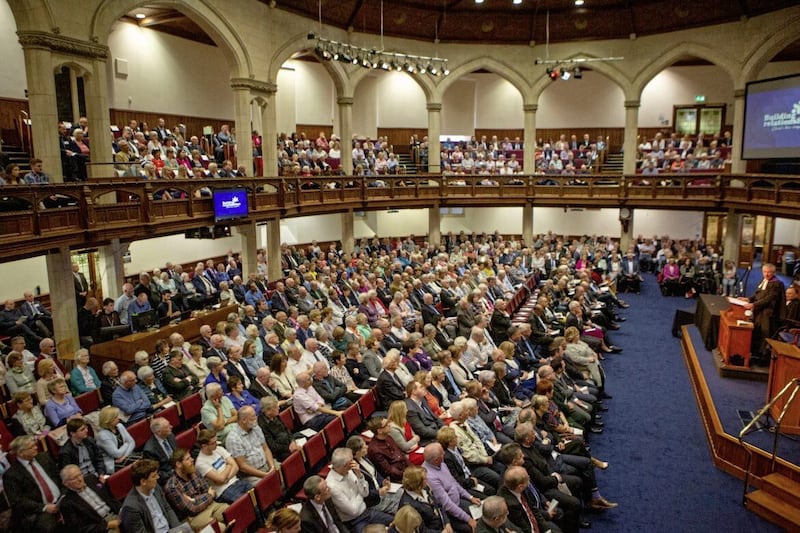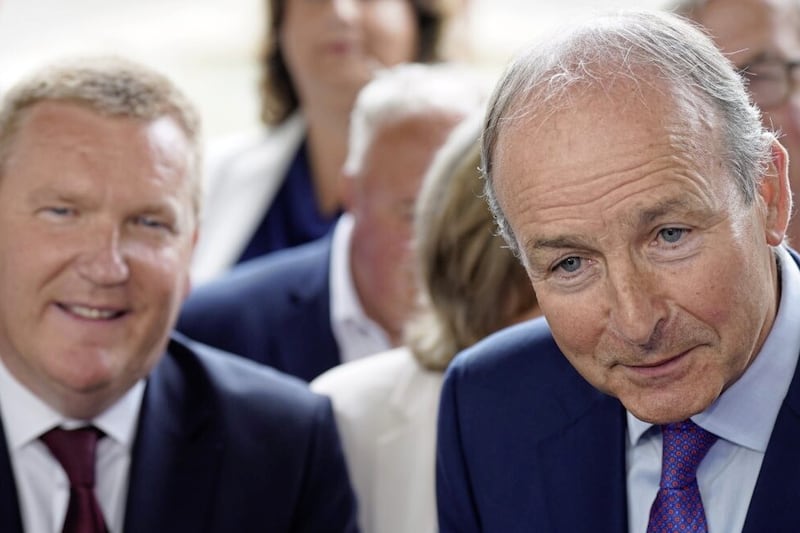Arlene Foster’s Together UK Foundation might want to have a wee word with the Boys' Brigade to find out what’s going on.
A news story earlier this week revealed that the Boys' Brigade (BB) in the north is to form a separate organisation to those in Britain and the south of Ireland.
The decision to become a separate body was made last year over “cultural differences” on faith matters and next week the terms of the split are expected to be voted on, allowing for the formation of a BBNI. Actually it’s a seven-county organisation, as companies from Donegal will also form part of the new association.
The BB has about 11,000 members and 2,500 leaders in around 260 mostly Presbyterian churches, but in other Protestant denominations as well. As youth organisations go in the north, it’s a sizeable one.
Although it has not been stated explicitly, it is believed that the more liberal position of the BB in Britain and the south of Ireland on LGBTQI+ issues such as same-sex marriage is one of the cultural differences behind the split.
The thinking behind the split is a classic example of an “ourselves alone” attitude of the main denomination that makes up the unionist people of the north. Both the south of Ireland and Britain are too liberal for them.
It’s reminiscent of when the Presbyterian Church in Ireland voted at its General Assembly a number of years ago to end its formal exchanges with its mother church, the Presbyterian Church in Scotland. Again, this was because of the Scots' much more liberal stance on same-sex issues.

The former Moderator of the Presbyterian Church of Scotland, Rev Susan Brown, reportedly left the General Assembly in Belfast in tears following the vote.
Even going back to partition, the north has always been a place apart, with a parliament established in 1921 before devolution was even a thing. Partition was never about being an integral part of the United Kingdom, it was about maintaining whatever limited control that could be exerted in the interests of the Protestant ascendancy. It has been 102 years of separateness.
Even at the dawn of the NHS, unionists were very wary, some even opposed to it, fearing it would provide a helping hand to nationalists and republicans. Now the NHS is held up as the sacred British cow that could never be sacrificed in the event of reunification.
But this is an NHS with waiting lists years longer than the NHS in England and health outcomes that are much worse than in the south. It’s almost comedic that the most British thing that unionism wants to keep is the thing that is performing the worst.
Unionism has always known that the north is a place apart, otherwise why would it have established the Campaign for Equal Citizenship in the mid-80s?
The group was formed in opposition to the Anglo-Irish Agreement and concerns that the devolution proposals in the Agreement were the first steps towards reunification. The group called for the full participation of British political parties in the north’s politics. The Labour party refused and the NI Conservatives have never gained any real level of support and the campaign fizzled out due to lack of interest.
So it’s hard sometimes to understand when unionism says things like the Protocol or Windsor Framework diminishes their Britishness when there are both big and small examples of where unionism has chosen to place itself apart. It seems at times that they neither want to be Irish nor British.
There is also the view within unionism, simply, that because of the Brexit Protocol, the north is left within the EU whilst Britain has left and therefore the kingdom is neither united nor are its citizens equal. Full restoration of equal citizenship, we are told, can only come in the form of Brexit arrangements that meet the DUP’s seven tests.
The argument is put forward that anything less will mean that the north will be in closer harmony with the south than it is with Britain. Unionism fears that the British government’s reasoning for maintaining devolution in the north is to act as a transition to a united Ireland. That, and the inability to serve alongside a Sinn Féin First Minister are the biggest reasons for not returning to the Assembly.
Ironically, a stable Assembly and a functioning Protocol where everything was ticking along nicely are more likely to diminish than amplify calls for a border poll.
If unionism is playing its last card, then it’s clearly not able to read the poker faces in the room.







